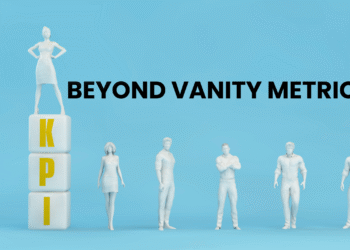Flutterwave, one of Africa’s most prominent fintech companies, is leading the transformation of digital payments across the continent. Through strategic use of data-driven insights, robust partnerships, and an inclusive approach to innovation, Flutterwave has positioned itself at the forefront of Africa’s financial revolution.
Founded in 2016, the company has grown from a Nigerian startup to a pan-African payment technology provider. According to public data, Flutterwave has facilitated over 200 million transactions valued at more than $16 billion and supports over 1 million businesses globally. Its clientele includes major international brands such as Uber, Flywire, and Booking.com. With a robust payment infrastructure spanning 34+ African countries—including Nigeria, Uganda, and South Africa
This comprehensive case study explores the company’s impact, innovations, challenges, and future prospects in enabling seamless, secure, and scalable digital payments.
Impact on Digital Payments
Evolution of Payment Methods
Payment methods have evolved from barter systems and cash to digital solutions such as debit and credit card transactions, mobile wallets, and contactless technology. This transformation has been especially rapid in Africa due to the leapfrogging effect of mobile and internet technologies. Flutterwave has played a critical role in this evolution by simplifying payment infrastructure and enabling businesses, from small vendors to large enterprises, to accept and process digital payments with ease.
Flutterwave’s products, such as Store, Invoices, and Payment Links, empower African entrepreneurs to set up digital storefronts, collect payments online, and manage customer orders—even without a formal website. These solutions are tailored to the realities of African markets, where many businesses operate informally but require digital capabilities to scale and serve customers across borders.
Global Reach and Scale
Flutterwave’s growth is not just African — it’s global. The company’s infrastructure is designed to support businesses at scale, no matter where they operate. Here’s a snapshot of Flutterwave’s impressive scale:
- 30+ Currencies: Flutterwave accepts payments in over 30 currencies, enabling seamless cross-border transactions.
- 20 M+ API Calls Daily: Flutterwave’s platform processes over 20 million API calls daily, with traffic peaking at 231 requests per second — a testament to its high-performing infrastructure.
- 500k+ Payments Daily: On average, Flutterwave handles more than 500,000 payment transactions per day, providing reliability and speed for businesses of all sizes.
15+ Payment Methods Supported:
Debit & Credit Cards
Bank Accounts
Mobile Money
POS
M-Pesa
VISA QR
Bank Transfers
USSD
Financial Inclusion
A key mission of Flutterwave is to bridge the gap between the unbanked and the digital economy. By enabling small and medium-sized enterprises (SMEs) to accept mobile payments, the company promotes financial inclusion for individuals and communities traditionally excluded from formal banking. Whether it’s a young entrepreneur in Nigeria or a street vendor in Kenya, Flutterwave provides tools to engage in the digital economy.
However, fragmented acceptance infrastructure still presents challenges. Not all merchants accept all types of payments, and consumers may struggle with limited access to digital financial services. Flutterwave continues to tackle these challenges through innovative solutions and collaborations aimed at making financial services more inclusive and user-friendly.
Business Insights and Data Management
Central to Flutterwave’s value proposition is its ability to provide actionable business intelligence. Using data analytics, merchants can:
- Track performance with real-time dashboards
- Monitor sales trends
- Analyze customer behaviour
- Improve service delivery through inventory and notification systems
These insights allow businesses to make informed decisions that optimize revenue, increase efficiency, and build better customer relationships. The platform’s analytics dashboard enables data consolidation, eliminating the silos that often plague small businesses.
Security and Trust
Security is a major concern in the fintech space, especially in markets where trust in digital systems is still developing. Flutterwave employs robust security protocols, including:
- PCI-DSS compliance
- Data encryption and tokenization
- Multi-factor authentication
- Continuous security monitoring
These features are essential for building trust with users and preventing fraud, which is crucial for the long-term sustainability of digital payments in Africa.
Partnership with SMEDAN
Flutterwave’s partnership with the Small and Medium Enterprises Development Agency of Nigeria (SMEDAN) is a milestone in supporting MSMEs. This initiative provides digital tools, access to loans, and educational resources to help Nigerian entrepreneurs formalize and grow their businesses. The result is a stronger, more digitally empowered SME sector capable of contributing significantly to national GDP.
Launch of Digital FX Solution: Swap
To address Nigeria’s volatile foreign exchange environment, Flutterwave launched Swap , a digital FX platform developed in partnership with Wema Bank and Kadavra BDC. With support from the Central Bank of Nigeria, Swap allows users to exchange currencies digitally, reducing dependency on the black market and improving the efficiency of cross-border payments. This move not only solves a real economic problem but also expands Flutterwave’s value proposition beyond payment processing.
Integration of Automated Monitoring with Unit21
In its operations, Flutterwave has replaced manual processes with automated systems such as Unit21, a transaction monitoring platform that leverages machine learning. This shift has enabled the company to generate real-time reports, detect anomalies faster, and improve compliance workflows—critical in a regulatory-heavy industry.
Enabling the Fintech Ecosystem
Flutterwave’s efforts are helping to build the broader African fintech ecosystem. The company’s success encourages more tech startups to innovate in financial services. By embedding payment capabilities into everyday tools for African businesses, Flutterwave has created ripple effects across the continent, inspiring a new wave of innovation in commerce, logistics, and digital identity.
Challenges and Limitations
Regulatory Compliance
Operating across diverse African markets comes with regulatory complexities. Compliance with local and international laws is time-consuming and often expensive. In Nigeria, for instance, policy shifts by the Central Bank can instantly change operating conditions. Staying compliant while scaling is an ongoing challenge. Central Bank of Nigeria.
Intense Competition
Flutterwave faces competition from global giants like Stripe, PayPal, and local rivals like Paystack. These competitors have deep pockets and global infrastructure, making it crucial for Flutterwave to continue innovating, building local trust, and maintaining a user-centric approach.
Serving Underserved Populations
Reaching rural and low-income communities remains difficult due to factors such as poor internet access, lack of financial literacy, and inadequate identification systems. Overcoming these barriers requires not just technology, but partnerships with governments and NGOs to promote digital inclusion.
UX and Cultural Sensitivity
As the company expands across countries with different languages, customs, and expectations, building culturally appropriate user experiences is a challenge. UX research must account for varying user behaviors and digital readiness, which can slow down product development or lead to misaligned features.
Evolving Security Threats
Cybersecurity is a moving target. While Flutterwave has robust systems in place, staying ahead of fraudsters and ensuring the integrity of its platform requires ongoing investment in infrastructure and talent.
Lessons for the Industry
Flutterwave’s journey offers critical insights for fintech players in emerging markets:
- Localization is key: Country-level data beats continental averages.
- Infrastructure redundancy is critical: Systems must predict and adapt to outages.
- Trust is measurable: Track and build trust as a core KPI.
- Agility in compliance is a moat: Speedy adaptation confers competitive advantage.
- Cultural nuance matters: Financial behaviours must be interpreted within local contexts.
- Granular data wins: While continental averages are helpful, real impact lies in country-specific insights.
- Be regulation-agile: Rapid adaptation to shifting regulatory landscapes is essential.
Future Prospects
Flutterwave is poised for accelerated growth, projecting nearly $500 million in gross profit by 2025, with gross margins exceeding 50%. From $5 million in revenue in 2018 to over $55 million in 2020, its trajectory has been steep and consistent.
Key strategic moves fueling this momentum include:
- Partnership with American Express
- 13 new U.S. money transfer licenses covering 29 states
- Global footprint across Nigeria, San Francisco, Kenya, Uganda, and South Africa
- Recognition by CNBC as a Top 250 Fintech Company
CFO Mitesh Popat emphasizes a focus on sustainable profitability before pursuing an IPO. With 90% of Africa’s transactions still cash-based, and a digital payments market projected to hit $40 billion by 2025 , Flutterwave aims to lead by simplifying the ecosystem for businesses across the continent.
Flutterwave’s success is rooted in its ability to combine technology, data, and partnerships to solve real-world problems. By streamlining payments, improving access to financial tools, and using data insights to inform strategy, Flutterwave isn’t just processing payments—it’s building the financial rails of the future in Africa. And it’s doing so with data at the core of every decision.
As African markets continue to digitize, companies like Flutterwave show that data-driven growth isn’t just a buzzword, it’s a business model.
At Marketing Analytics Africa, we empower African businesses to make smarter decisions through data-driven marketing strategies. Inspired by innovative companies like Flutterwave, it’s time for your brand to harness the power of analytics to scale, optimize, and lead in the digital economy.
Join our community of forward-thinking marketers.
Subscribe to our newsletter, attend our webinars, and explore our tools to turn insights into impact.
Let’s transform African marketing together.
Visit www.marketinganalytics.africa to get started.




